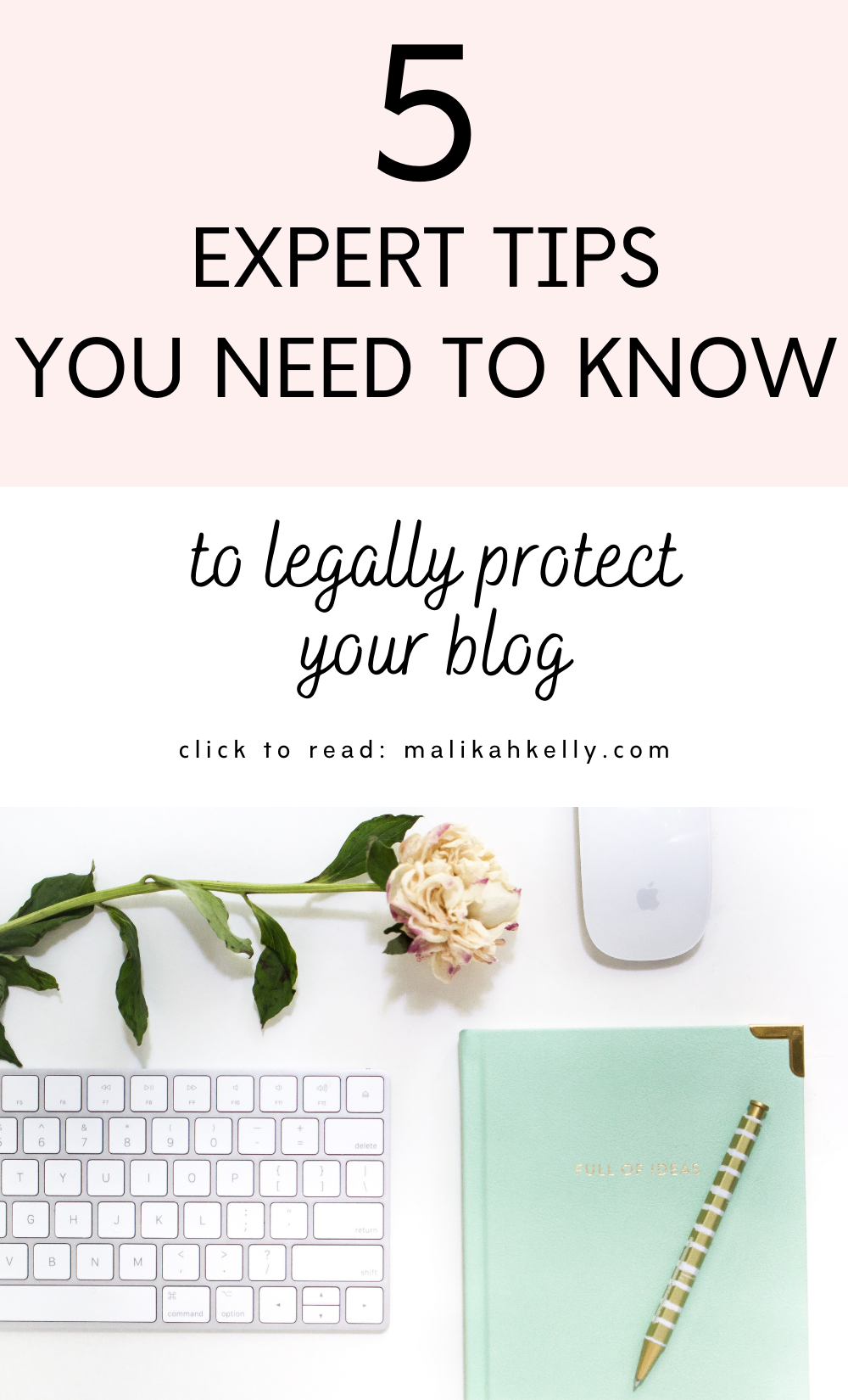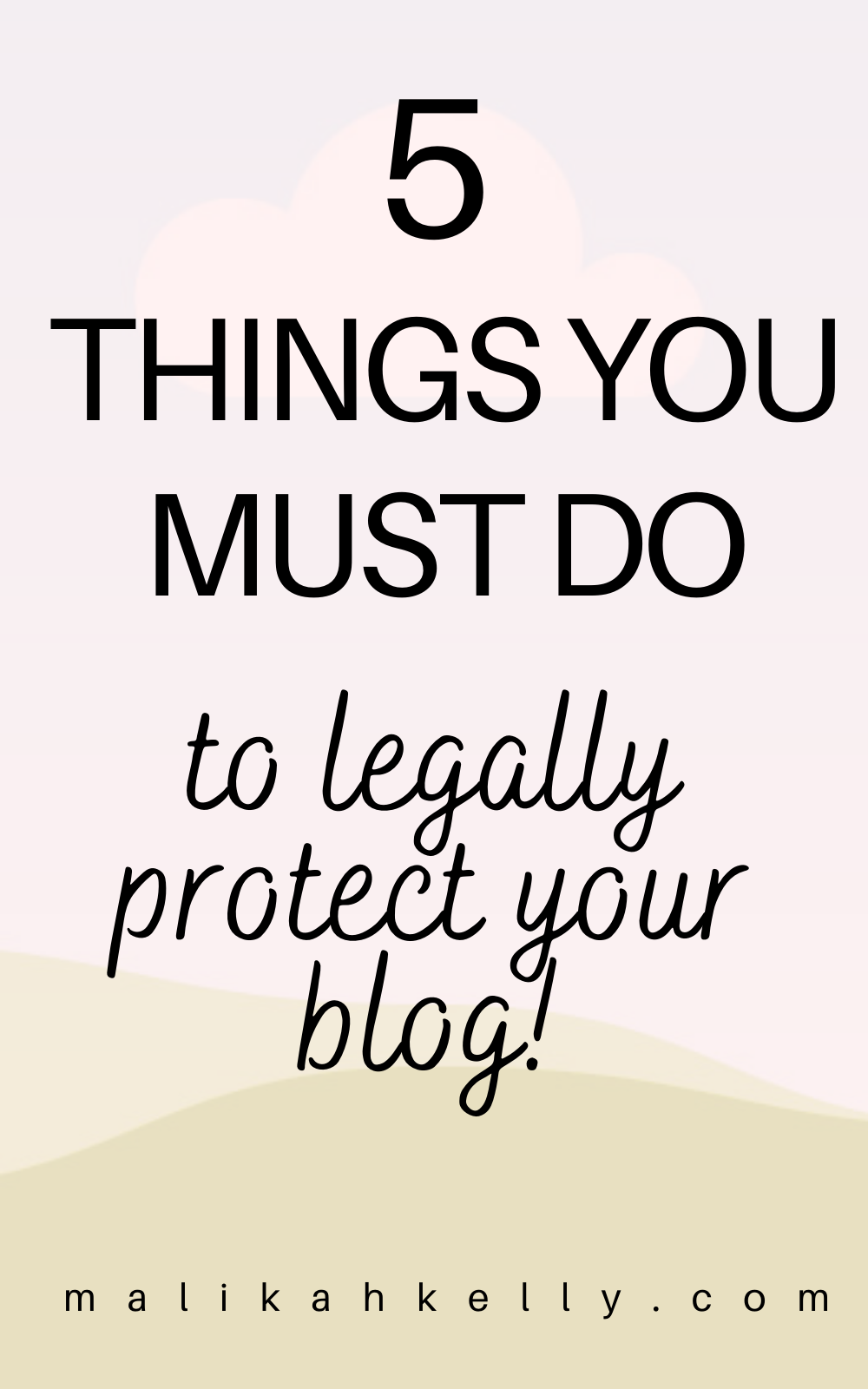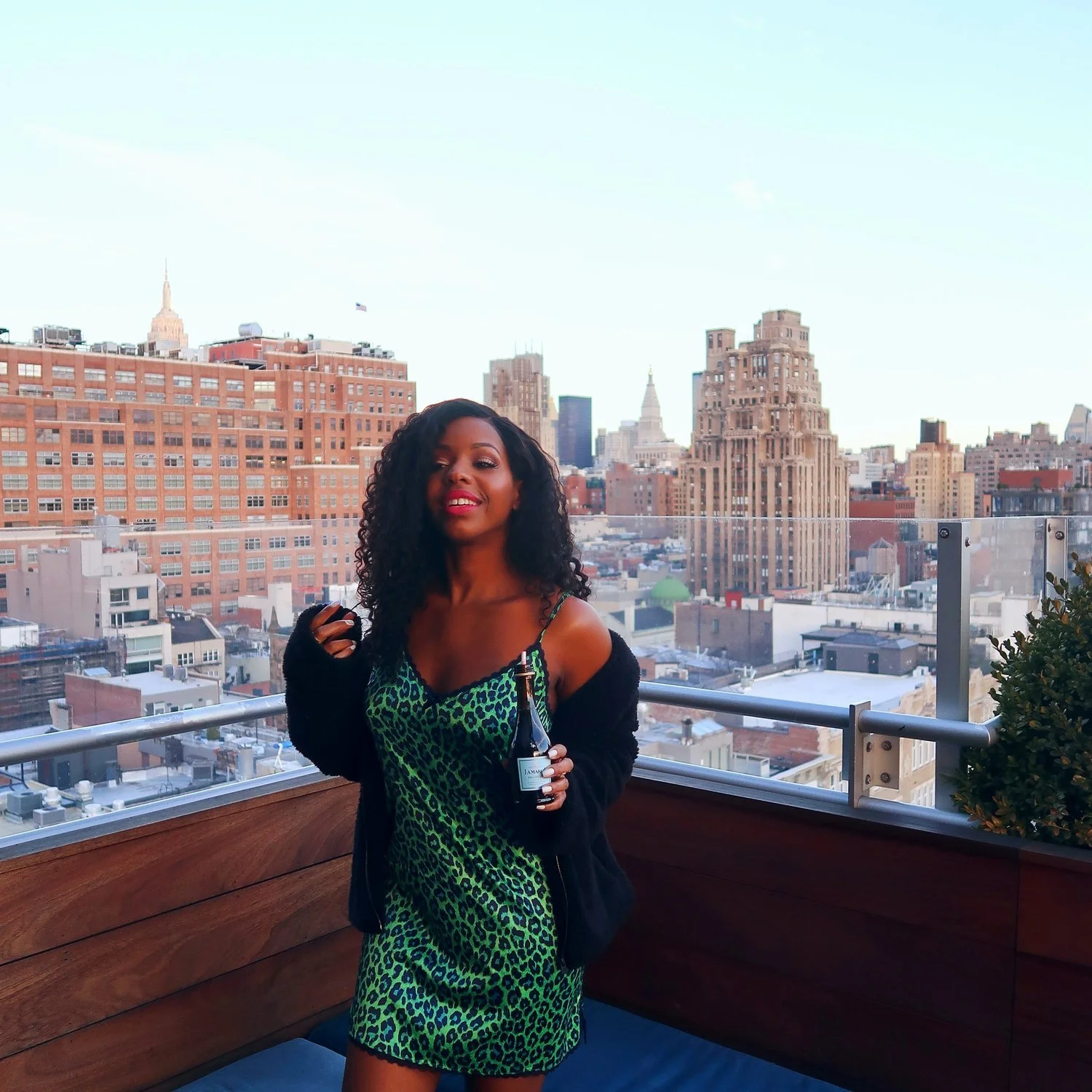5 Expert Tips to Legally Protect Your Blog
Blogging and working as a social media influencer is an in demand career path and shows no signs of slowing down! But what do bloggers need to know about their legal liabilty? Every small business has legal considerations they need to know. I chatted with a lawyer, Courtney of Courthouse Couture to get her expertise. Keep reading for 5 tips you need to know to legally protect your blog!
5 Expert Tips to Legally Protect Your Blog
Disclosure: all statements made are my personal opinion and do not reflect the opinion of my employer. No statements made establish any form of an attorney client relationship.
1. Tell me about yourself and your background/experience as a lawyer and Influencer.
I am a lawyer and have been a practicing attorney for over 10 years and I currently do commercial real estate transactions. However I have experience in criminal and civil litigation as well. I joined Instagram in 2014 however, I thought of my IG/Blog name probably 2 years before that. I officially launched my blog www.Courthousecouture.com in 2018.
2. What are some mistakes most Influencers make when it comes to legally protecting their business?
Influencing is ultimately a business and I would suggest doing some basic research on taxes and business entities. Each state is different and based on each individual’s personal situation different business types may provide more tax benefits. Legal zoom may be able to walk you through the process but if you are starting to earn lots of money I suggest a consultation with an attorney and accountant.
If Influencers are creating products or have a unique name, they may need to seek the assistance of an Intellectual Property lawyer to figure out how to protect themselves and/or their product.
Influencers should also be cognizant of disclosing when they are receiving sponsored product or gifted product. Here is a quick primer from the Federal Trade Commission. Often brands will ask an influencer to use the proper hashtags but it is the influencer’s ultimate responsibility to be knowledgeable. If you are confused, ask an attorney.
3. Contract negotiation never gets easy! What are some major red flags a new Influencer should look out for in a contract for a brand partnership. How can influencers protect themselves from scams and being taken advantage of?
I think common mistakes with contracts are not fully reading the contracts received, even for gifted items. Hidden provisions on usage of photos, non-compete clauses, and penalty for non performance are just a few examples of things to look for in a contract. If someone doesn’t understand a provision, they need to ask for at least 24-48 hours to review and see if they can consult with an attorney who handles influencer contracts. They can also ask the brand they are working with but it is not the brand’s legal responsibility to protect them.
4. Do you see any legal trends emerging as the influencer industry grows
I think influencer trends we will continue to see are influencers working together in teams to leverage their collective following when pursuing brand partnerships. I foresee Instagram, and brands, wanting to use the Instagram platform for people to buy merchandise instead of users going on outside programs ie: LIKEtoKNOW.it to purchase product. And I think that brands are going to continue to rely on influencers during the pandemic because it lowers the cost of their overall marketing budget. And they may not pivot after the pandemic. The influencer space provides a place for honest feedback in real time. Something large expensive marketing campaigns can’t provide.
5. You posted an interesting story about influencers being sued for promoting counterfeit products. Some influencers have also been sued, fined, or just downright shamed for failing to disclose or promoting questionable brands/events (Fyre Festival and sponsored pharmaceutical posts for example). What do influencers need to know about their responsibilities/liabilities?
Over the past year I have seen more Influencers using and linking products that are copies of branded items. For example, wearing a bag with Louis Vuitton logos that is not a Louis Vuitton bag but an exact replica of one. This is not the same as wearing an item that looks substantially similar to a designer item but does not use a brand logo. An influencer was sued for promoting these copied items and I think that as brands get smarter they may go after influencers who keep promoting these types of products. LIKEtoKNOW.it has already sent a letter to influencers asking them not to use the word “dupe” or copy in captions. They suggested using phrases like “the look for less.” We will see if people continue to promote these items but I wouldn’t do it to be safe.
Influencers should be mindful of what they promote, and the ramifications of promoting something without having full details on what they are promoting. If you are not sure on the details, feel like something is wrong, or don’t like the direction of something don’t accept payment or move forward. It is better to say no to a project than to say yes and ruin your personal brand by attaching yourself to something like Fyre festival for example.
About the Contributor
Courtney is an attorney in Houston and the creator of courthousecouture.com, a fashion blog and lifestyle brand where she discusses fashion, life, and her journey as an attorney. Follow her on Instagram for more!









